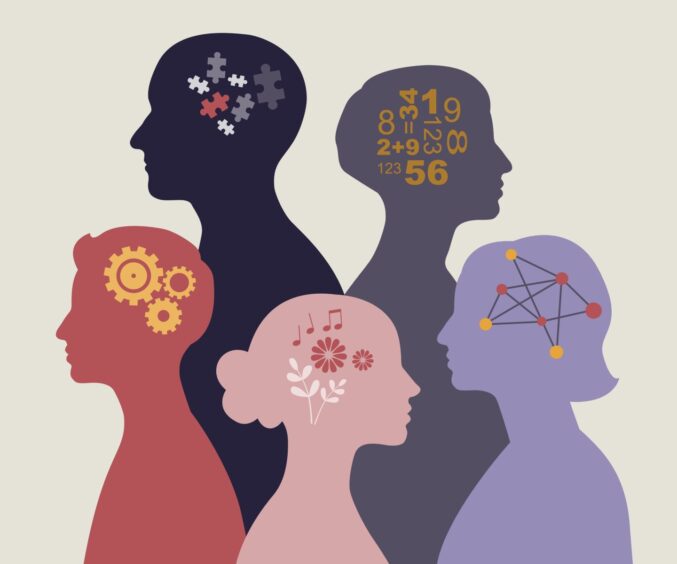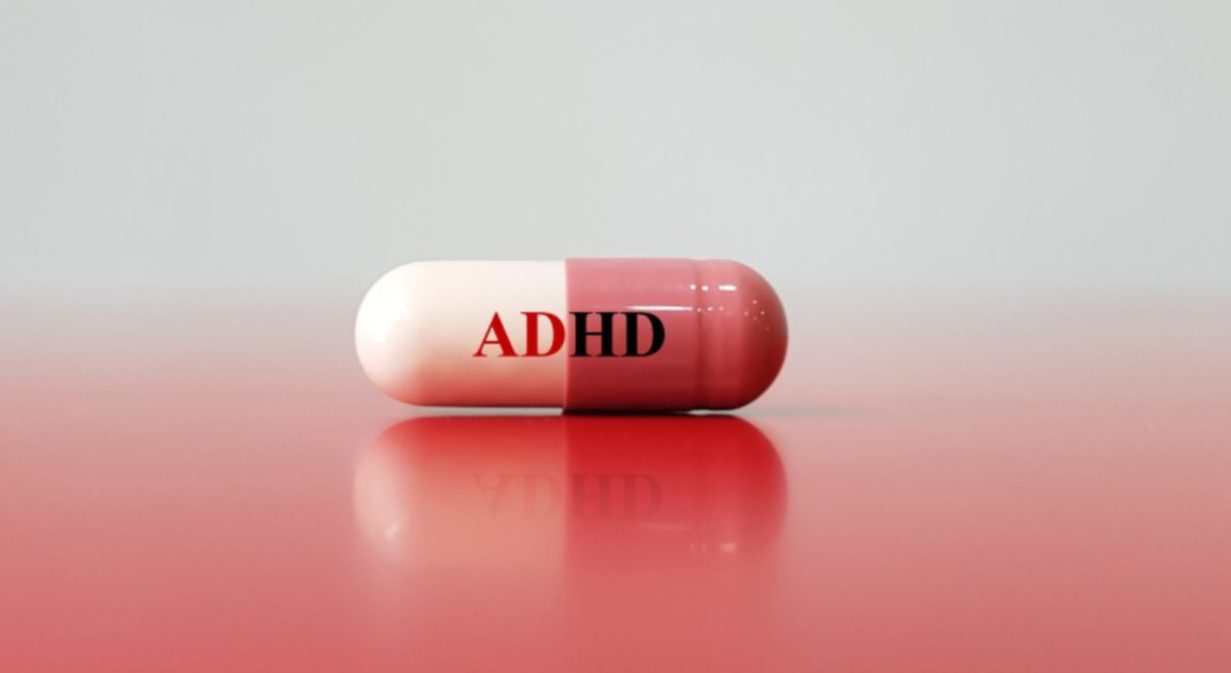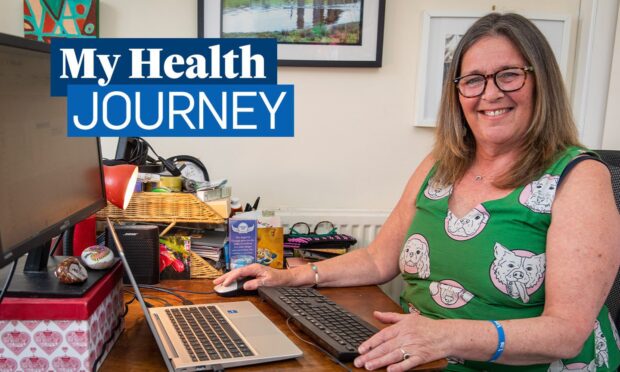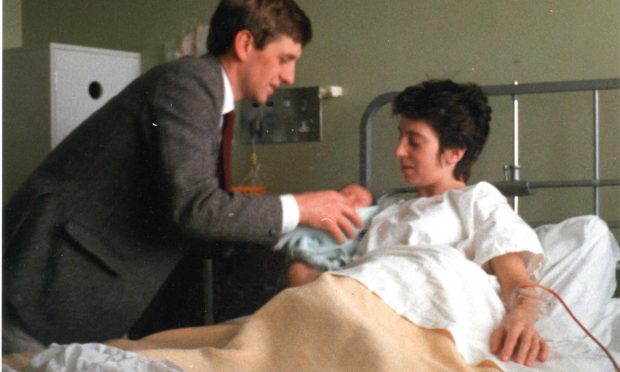Around 10 to 15 percent of Scotland’s population have a neurodivergent condition, according to the Scottish Government.
Those conditions can include autism and ADHD.
In people who are neurodivergent, their brains function differently and this affects how they learn, interpret and process information.
Some forms of neurodivergence, such as dyspraxia or dyslexia, are sometimes referred to as specific learning differences.
But neurodivergence can also include conditions like autism, ADHD, ADD and Tourette’s syndrome.
It is estimated that around one in seven people in the UK are neurodivergent.
And most forms of neurodivergence are based on a spectrum – where characteristics or traits can vary from person to person.
Many people can live for years undiagnosed with a neurodivergent condition and the road to diagnosis isn’t always simple.
So what do you do if you are an adult in Fife and Tayside and suspect you have a neurodivergent condition such as ADHD or autism?
Do you go to your GP? Where do you get an assessment? And if your GP can’t help you, where can you get a private diagnosis?
We answer all your questions.
What should I do if I suspect I have a neurodivergent condition, such as ADHD or autism?
Firstly you should make an appointment with your GP.
Have an open and honest conversation about why you think you might have a neurodivergent condition like autism or ADHD.
Following that conversation you and your GP may decide to refer you for an assessment to find out if you are neurodivergent.
Who carries out the assessment?
Tayside
There are a number of different clinical teams and services across the three health and social care partnerships in Tayside which can assess patients for Neurodevelopmental Disorders (NDD) in adults.
Where a person is already in treatment for another clinical problem, such as depression or a personality disorder, and it becomes clear they may also have a NDD, the service already treating the person may simply complete that assessment and feedback the results to the person involved.
For those people being referred only for the assessment of a NDD, or where the condition might be more complex, the person might be referred to a team looking at Autism Spectrum Conditions and one for ADHD and related conditions.
For autism spectrum conditions, the Tayside Adult Autism Consultancy Team (TAACT), is managed by the Dundee Health and Social Care Partnership. It operates across the whole of Tayside.
For ADHD and related conditions, referrals are made to Community Mental Health Teams (CMHTs) across Angus, Dundee and Perth & Kinross.
Fife
Fife does not have a stand-alone service which diagnoses Adult Neurodevelopmental Disorders.
Adult Neurodevelopmental Disorder diagnostic assessments are carried out by the Community Mental Health Teams (CMHT) in Fife.
But a neurodevelopmental diagnostic assessment is performed in Fife only when it is essential to meet the person’s mental health needs.
For example, it would only apply if someone has a significant complex mental health disorder or risk as well as significant functional impairment caused by autism and/or ADHD.
What does the assessment involve and how long does it take?
Neurodivergent tests typically involve a series of questions that look at your background history.
They will also look at how you process information. It also looks at sensory processing, communication, and social experiences.
The assessment will vary depending on the neurodivergent condition.
For example an autism assessment involves the assessment team asking you to fill out a questionnaire about yourself and the problems you have; speaking to someone who knew you as a child to find out about your childhood and reading any GP reports to learn about any health problems you might have.
An ADHD assessment may involve a structured medical assessment of your mental health and a full psychiatric history.
This means that the doctor will look at other health conditions, especially mental health conditions, which may either exist alongside possible ADHD or exist instead of ADHD.
Whereas, a dyspraxia assessment will look at cognitive abilities, literacy skills and fine motor skills.
Tayside
All assessments are person-centred and, as a result, take varying amounts of time. However, assessments for TAACT patients generally take a minimum of three hours, which is usually split over two or three sessions. TAACT aims to complete assessments within six weeks.
For ADHD and related conditions, the assessment takes an average of three to four sessions to complete a full background history and discuss current symptoms with patients.
The assessment includes the completion of relevant ADHD screening tools by both the patient and their family (if possible) to capture the full history.
Fife
Diagnosis of neurodevelopmental disorder (NDD) can be complex, particularly in adults.
It can require multi-disciplinary assessment over a long period of time.
Many of the symptoms are not specific to NDD (for example, difficulties with concentration, social functioning or impulse control) so rates of non-diagnosis, in general, can be high.
This risks leaving someone with an unmet need if services focus entirely or mainly on diagnosis.
This is why in Fife there isn’t a focus on a diagnosis as a requirement for someone to get support.
What are the current waiting times to get an neurodivergent assessment?
Tayside
There has been a 40% increase in referrals made to TAACT since 2019 and the current waiting time is five years for assessment.
Those on the waiting list are advised to contact their GP if their mental health gets worse.
This is so they can then be referred to the most appropriate service depending on their mental health needs.
As each Community Mental Health Team across Angus, Dundee, Perth and Kinross is managed by each of its own health and social care partnership, waiting times can vary.
Fife
There isn’t a waiting list specifically for these assessments or a stand-alone service which diagnoses Adult Neurodevelopmental disorders such as ADHD or autism in Fife.
Waiting times for Adult Neurodevelopmental Disorder (NDD) assessments are included in the information reported for the whole of Community Mental Health Teams (CMHT) and Psychology Service activity.
What do I do if my GP won’t refer me?
If your GP won’t refer you, you can consider getting a second GP opinion.
You can formally put in a request to your GP practice. Or you can informally book a new GP appointment and request a different doctor.
The Scottish ADHD coalition also suggests that if you feel that your mental health is getting worse and you need to be seen sooner, you should go back to your GP and ask him/her to make contact with the mental health team again.
And in extreme cases, it suggests you could write to your health board or your local MSP to complain.
Or, another option is to go for a private assessment and diagnosis.
Where can I get a private diagnosis for autism or ADHD and how much does it cost?
There are some organisations and clinics across Tayside and Fife offering private assessments for neurodivergent conditions. Some examples are listed below.
Tayside
The Invertay Practice in Monifieth offers adult autism assessment which costs £1,700.
Curious Minds, based in Dundee, also offers autism assessments for teenagers and young adults in the city and across Tayside. It’s autism assessment package costs £1,800.
Meanwhile, the ADHD centre offers online assessments in Dundee.
A 90-minute adult online ADHD online assessment costs £695.
Thriving Minds Ltd, based in Perthshire, offers assessments for adult and adolescent dyspraxia. A diagnostic assessment and report costs approximately from £675.
Fife
The St Andrews Practice in Fife offers adult autism and ADHD assessments. Each assessment costs £1,700.
If people chose to go for a private assessment and diagnosis, is it recognised by the NHS?
NHS Fife says private assessment and diagnosis would be considered as part of the overall mental health assessment carried out.
While an NHS Tayside clinician will consider the quality of the assessment carried out by a private institution.
Where the assessment and report provided are in line with current guidelines, it will be accepted and used to inform any treatment or care required.
But where an assessment has not met the standard required, or reaches conclusions that do not match a patient’s medical history, the patient will be assessed again locally before any treatment is provided.
What are the benefits of a diagnosis?
The benefits of having a diagnosis include having an explanation for many things you have experienced throughout your life.
You can also find out more about how to manage your life and symptoms more effectively once you know exactly what your condition is.
You may be able to access suitable treatment such as medication, coaching and
counselling, which can help you manage your symptoms.














Conversation